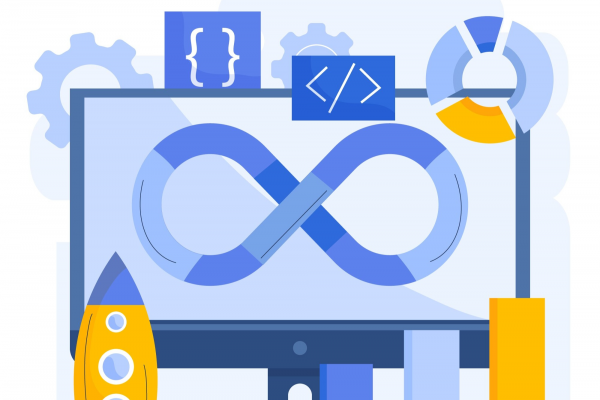Project management plays a crucial role in ensuring organizational competitiveness and successful outcomes in today’s fast-paced digital business environment. The adoption of Software as a Service (SaaS) applications and their implementation using digital platform engineering has revolutionized project management by transforming how teams collaborate, plan, and execute projects.
Project management software serves as a tool that assists individuals and teams in planning, organizing, tracking, and collaborating on projects. It provides a centralized platform for managing tasks, schedules, resources, and project-related communication. There are various project management software options available, each offering distinct features and functionalities.
In the continuously evolving healthcare sector, efficient project management is vital for delivering quality care, improving processes, and driving successful initiatives. Project management software utilized as part of digital platform engineering services has enabled healthcare organizations to streamline their operations, enhance collaboration, and ultimately improve patient outcomes. In this blog, we will delve into the significance of project management software in healthcare, its specific applications, and the benefits it brings to healthcare organizations, clinicians, and patients alike.
Note: When selecting project management software for your organization, it is crucial to evaluate features, ease of use, scalability, and integration capabilities.
Streamlining IT Implementations: Project management software plays a crucial role in efficiently planning, coordinating, and executing complex healthcare IT implementations like Electronic Health Records (EHR) or Hospital Information Systems (HIS). It ensures effective communication, task assignment, and resource management, resulting in minimal disruptions and improved operational efficiency.
Enhancement of Research Studies and Clinical Trials: Project management software is of great significance in managing research projects and clinical trials. It assists in study design, participant recruitment, data collection and analysis and promotes collaboration among research teams. Its robust capabilities enable the efficient management of studies, documentation, and compliance with regulatory requirements.
Optimization of Workflow and Process Management: Efficient workflow and process management are vital for delivering coordinated care. Project management software aids in mapping existing processes, identifying inefficiencies, and implementing improvements. It facilitates collaboration among healthcare professionals to redesign processes, monitor information, and measure the impact of changes. By optimizing workflows, healthcare organizations can improve patient flow, reduce wait times, and enhance overall operational efficiency.
Promoting Patient Safety and Regulatory Compliance: Patient safety and adherence to regulatory requirements are paramount in healthcare. Project management software assists in managing projects related to patient safety initiatives, regulatory compliance audits, and quality standards. It enables organizations to implement safety protocols, track compliance, conduct audits, and ensure continuous improvement. By proactively addressing patient safety and regulatory requirements, healthcare organizations can mitigate risks, ensure legal compliance, and provide the highest standard of care.
Facilitating Medical Equipment and Technology Deployments: Deploying medical equipment and technology requires careful coordination and planning, core to digital platform engineering. Project management software streamlines the process by facilitating stakeholder communication, tracking equipment inventory, managing installation schedules, and ensuring staff training. This ensures the seamless integration of new technologies, minimizes disruption to patient care, and maximizes the utilization of healthcare resources.
Driving Quality Improvement Initiatives: Healthcare organizations prioritize improving the quality of patient care. Project management software supports improvement initiatives by facilitating systematic planning, implementation, and evaluation of projects. It enables organizations to define metrics, track progress, identify areas for improvement, and engage multidisciplinary teams in the optimization process. By leveraging data-driven decision-making, project management software empowers healthcare institutions to enhance patient safety, reduce errors, and optimize clinical outcomes.
Managing Facility Expansions and Renovations: Project management software assists healthcare organizations in effectively managing facility expansions or renovations to meet growing patient demands. It enables effective project scheduling, budget tracking, resource allocation, and stakeholder collaboration. By centralizing project information, healthcare institutions ensure compliance with safety standards, optimize space utilization and deliver projects on time and within budget.
In summary, project management software enables healthcare organizations to coordinate teams efficiently, allocate resources effectively, track project milestones, and adhere to timelines and budgets. Its centralized platform, streamlined through digital platform engineering services, facilitates seamless communication, real-time monitoring, and data-driven decision-making, fostering continuous improvement and innovation in healthcare delivery. Embracing project management software is vital to achieving excellence in patient care and advancing the healthcare industry as a whole.



